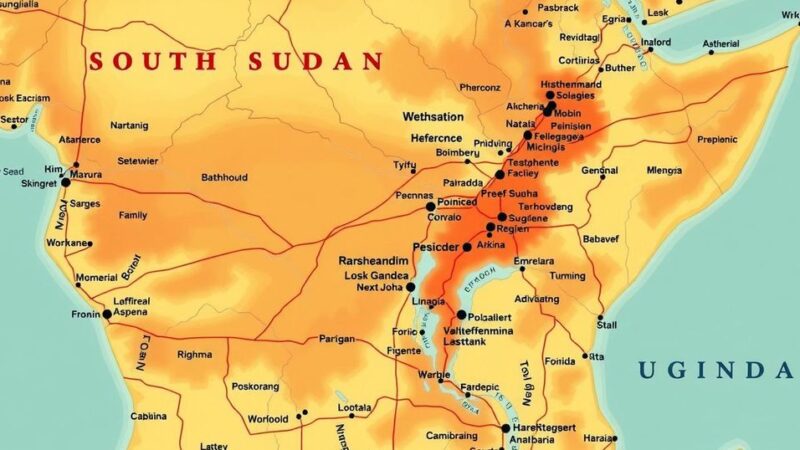The recent collapse of Assad’s regime may reshape Lebanon-Syria relations, previously characterized by hostility and conflict. With calls for renewed cooperation among key political figures, opportunities arise to address longstanding border disputes and economic ties. However, ideological divides and regional dynamics present challenges that need careful navigation to foster a new era of stability between the two nations.
For decades, the relationship between Lebanon and Syria has been marked by tension and hostility, largely influenced by historical conflicts, occupations, and political dominion. The rise of the Iran-backed militant group Hezbollah during Syria’s civil war further complicated these dynamics as its involvement was tied to the support of Bashar Al-Assad’s regime. Following Assad’s recent collapse, significant shifts in bilateral relations are anticipated, as prominent political figures express desires for renewed cooperation based on mutual interests and respect.
The suspension of consular services by Syria after an incident involving relatives of the deposed president underscores the fragility of their relations. Concurrently, opportunities arise for Lebanese-Syrian ties to rebuild, as articulated by Lebanese MP Bilal Abdullah, who emphasized the potential for constructive engagement moving forward. Regional leaders, including Walid Jumblatt from the Progressive Socialist Party, have also signaled openness to a fresh diplomatic chapter, signifying a historical pivot.
However, the fall of Assad reveals deep ideological divides within Lebanon, reflected in the varied responses from different political factions. While some view this as a validation of their long-standing positions against Syrian influence, others remain cautious, particularly Hezbollah and its allies, who fear losing Syria as a strategic partner. Political analysts point to the necessity of resolving issues stemming from the Syrian Civil War, notably concerning border control and the transnational drug trade, particularly with the rampant trafficking of Captagon, which exacerbates Lebanon’s relations with Gulf states.
Furthermore, the Syrian refugee crisis adds a layer of complexity, as Lebanon grapples with over 1.5 million refugees while facing an unsteady economic landscape. The recent restrictions imposed by Syria on Lebanese citizens entering the country signal the potential challenges ahead. Efforts to stabilize borders and address unresolved territorial disputes are identified as critical steps toward enhancing cooperation. In the economic sphere, the end of Assad’s era presents an opportunity for renewed trade partnerships that could yield benefits both for Lebanon, in light of its financial crisis, and for Syria’s recovering economy.
The regional landscape will also be influential, as Beirut’s approach to Damascus will be shaped by international perceptions of Syria’s transitional government. While optimism exists, significant challenges remain, including upcoming elections in both nations and vital questions concerning displaced individuals. The potential for a new era of Lebanese-Syrian relations is palpable, and should stakeholders adeptly navigate the complexities ahead, they may usher in a moment of stability for both nations.
The Lebanon-Syria relationship has been historically strained due to various factors, including occupation and the Syrian Civil War, which started in 2011. Hezbollah’s role in supporting Assad’s regime further complicated relations, leading to widespread resentment among Lebanese citizens. The recent fall of Assad’s government creates a pivotal moment, offering a chance for both countries to redefine their relations based on respect and cooperation. The context of regional politics, the refugee crisis, and economic recovery are imperative to understand the current developments in this bilateral relationship.
In conclusion, the changing political landscape following Bashar Al-Assad’s departure opens a crucial chapter in Lebanese-Syrian relations. While significant opportunities for cooperation exist, particularly in economic domains and border security, challenges stemming from ideological divides and regional political dynamics will require careful navigation. If successfully managed, the relationship between Lebanon and Syria may transition towards a more collaborative and stable interaction, marking a departure from decades of animosity.
Original Source: www.newarab.com






